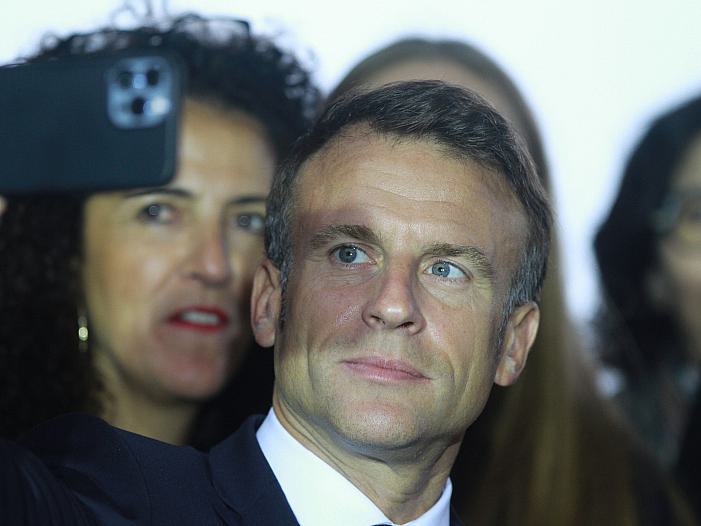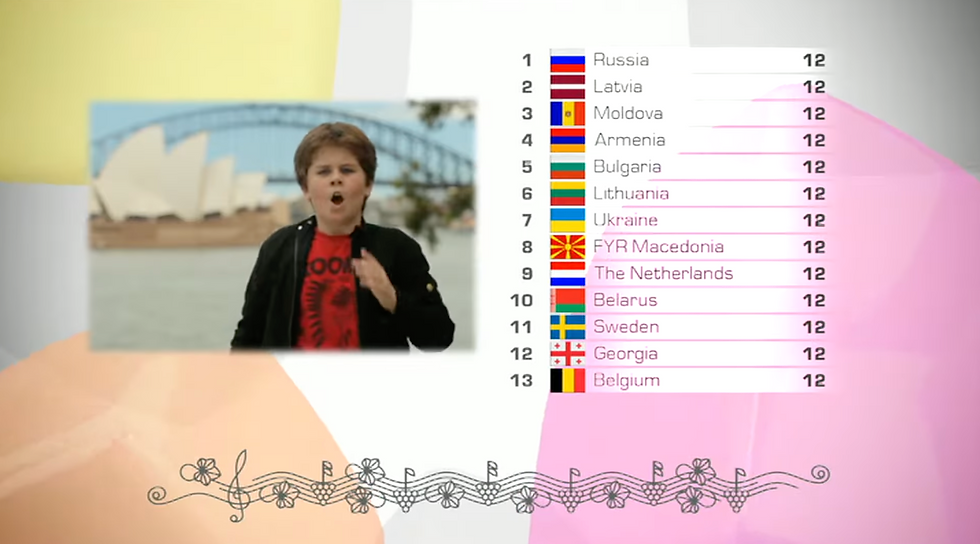Merz And Macron: Contrasting Approaches To The Far Right

Table of Contents
The rise of far-right populism presents a significant challenge to established political parties across Europe. This article compares and contrasts the approaches taken by Friedrich Merz (CDU, Germany) and Emmanuel Macron (LREM, France) in confronting this threat, highlighting their differing strategies and potential effectiveness. We will examine their policy responses, communication styles, and overall political positioning in relation to the far-right, analyzing the nuances of their respective strategies and their potential impact on the future of center-right politics in Europe.
Friedrich Merz's Approach to the Far Right in Germany
Appeasing Centrists and Co-opting Issues:
Merz's strategy hinges on appealing to centrist voters who feel disillusioned with the CDU's previous trajectory. He aims to reclaim voters lost to the Alternative for Germany (AfD) by addressing concerns traditionally exploited by the far-right, such as immigration and security, but through a more moderate lens. This approach involves subtly shifting the CDU's platform to incorporate some elements of the far-right's agenda without explicitly endorsing their extremist views.
- Immigration: Merz advocates for stricter border controls and a more selective immigration policy, focusing on skilled migrants and addressing integration challenges. He avoids the overtly xenophobic rhetoric frequently used by the AfD.
- Security: Merz emphasizes a strong stance on law and order, promising increased police presence and tougher sentencing for crimes. His approach, while firm, attempts to remain within the bounds of established legal frameworks.
- Economic Issues: Merz focuses on economic policies aimed at boosting national competitiveness and improving the living standards of working-class families. This is partly an attempt to counter the AfD's populist economic narrative.
Merz's strategy involves attempting to de-legitimize the far-right by demonstrating that the CDU can address their concerns more effectively and responsibly. He seeks to portray the AfD as an extremist fringe group incapable of governing effectively.
Limitations of Merz's Strategy:
Merz's approach faces criticism. Some accuse him of being too soft on the far-right, failing to decisively confront its underlying ideology of nationalism and xenophobia. Critics argue that co-opting issues without directly challenging the far-right's narrative may inadvertently legitimize their presence in the political discourse.
- Accusations of appeasement: The concern exists that by adopting similar positions on certain issues, Merz risks normalizing the far-right's views and enabling their further integration into mainstream politics.
- Effectiveness questioned: The long-term effectiveness of this strategy remains to be seen. While it might attract some centrist voters, it could also alienate traditional CDU supporters who find Merz's approach too accommodating to the far-right.
- Vulnerabilities: Merz’s strategy leaves him vulnerable to attacks from both the far-right (for not being extreme enough) and the left (for being too conciliatory).
The success of Merz’s strategy will depend on his ability to balance the needs of attracting centrist voters while maintaining the CDU's core values and decisively rejecting the extremist ideologies of the far-right.
Emmanuel Macron's Approach to the Far Right in France
Confrontational and Ideological Opposition:
Macron adopts a starkly different approach. He has consistently taken a direct and confrontational stance against the far-right, explicitly criticizing their ideology and rhetoric. He actively frames the far-right as a threat to French republican values and secularism (laïcité).
- Public Statements: Macron regularly denounces the far-right's divisive rhetoric and policies, highlighting the dangers of extremism and intolerance.
- Policy Initiatives: Macron’s government has implemented policies designed to combat extremism, including increased surveillance and measures to prevent radicalization.
- Emphasis on Republican Values: Macron repeatedly emphasizes the importance of upholding secular values and combating religious extremism, a direct challenge to the far-right's often religiously-infused nationalism.
The Risks of Direct Confrontation:
Macron's confrontational strategy carries inherent risks. Directly challenging the far-right can potentially polarize the electorate and inadvertently boost their support. By framing the political debate as an "us vs. them" struggle, he risks empowering the far-right narrative.
- Polarization: A confrontational approach might solidify support for the far-right amongst those who feel marginalized or unheard by the mainstream.
- Effectiveness Debate: The effectiveness of this approach in mitigating the far-right's influence is a matter of ongoing debate.
- Comparative Analysis: Comparing Macron's approach to other European leaders reveals a variety of responses, underscoring the complexities of dealing with far-right populism across different national contexts.
The success of Macron's strategy hinges on his ability to maintain a strong, unified stance against the far-right while simultaneously appealing to a broad base of voters beyond his core constituency.
Comparing and Contrasting the Two Approaches:
Merz and Macron exemplify two contrasting strategies for addressing the far-right: co-option versus confrontation. Merz attempts to neutralize the far-right by co-opting some of their concerns, while Macron directly confronts their ideology and rhetoric.
- Context Matters: The effectiveness of each approach depends heavily on the specific political context. Germany's fragmented political landscape and the strength of the AfD may necessitate a more nuanced approach than that employed by Macron in France, where the far-right is less entrenched in the parliamentary system.
- Long-Term Consequences: The long-term consequences of each strategy remain unclear. Co-option may lead to the gradual erosion of traditional political values, while direct confrontation carries the risk of further polarization.
- Implications for Center-Right Parties: The successes and failures of both Merz and Macron's strategies have profound implications for the future of center-right parties across Europe, demonstrating the challenges these parties face in effectively countering far-right populism.
Conclusion:
This article explored the contrasting approaches of Friedrich Merz and Emmanuel Macron in tackling the challenge of the far-right in Germany and France. While Merz adopts a strategy of appealing to centrists and co-opting certain issues, Macron opts for a more direct and confrontational approach. Both strategies have their merits and drawbacks, highlighting the complexities of navigating the political landscape in the face of rising far-right populism. The effectiveness of each approach remains to be seen, and further research is crucial to understanding the long-term consequences of each strategy.
Call to Action: Understanding the different strategies employed by leaders like Merz and Macron in confronting the far-right is crucial. Further research into their effectiveness and the broader European context is necessary to develop effective strategies for combating the rise of the far-right in the future. Continue exploring the complexities of Merz and Macron's approaches to the far-right and share your insights.

Featured Posts
-
 Final Destination Bloodlines New Trailer Showcases Tony Todds Comeback
May 19, 2025
Final Destination Bloodlines New Trailer Showcases Tony Todds Comeback
May 19, 2025 -
 Adios A Juan Aguilera Leyenda Del Tenis Masters 1000
May 19, 2025
Adios A Juan Aguilera Leyenda Del Tenis Masters 1000
May 19, 2025 -
 Complete Guide To The Nyt Mini Crossword March 24 2025
May 19, 2025
Complete Guide To The Nyt Mini Crossword March 24 2025
May 19, 2025 -
 The Chronology Of Water A Mixed Bag Stewarts Debut Film Analyzed
May 19, 2025
The Chronology Of Water A Mixed Bag Stewarts Debut Film Analyzed
May 19, 2025 -
 Australias Junior Eurovision Participation Ends
May 19, 2025
Australias Junior Eurovision Participation Ends
May 19, 2025
